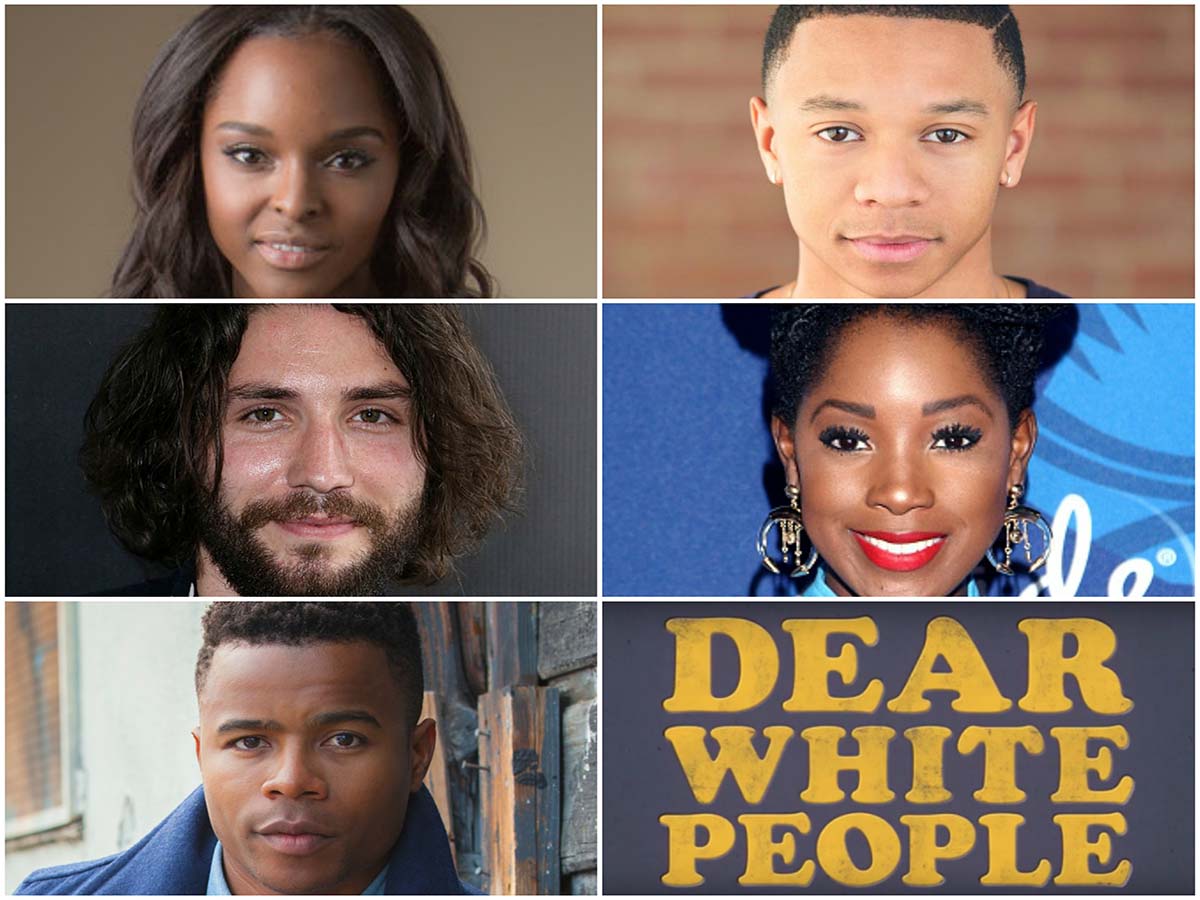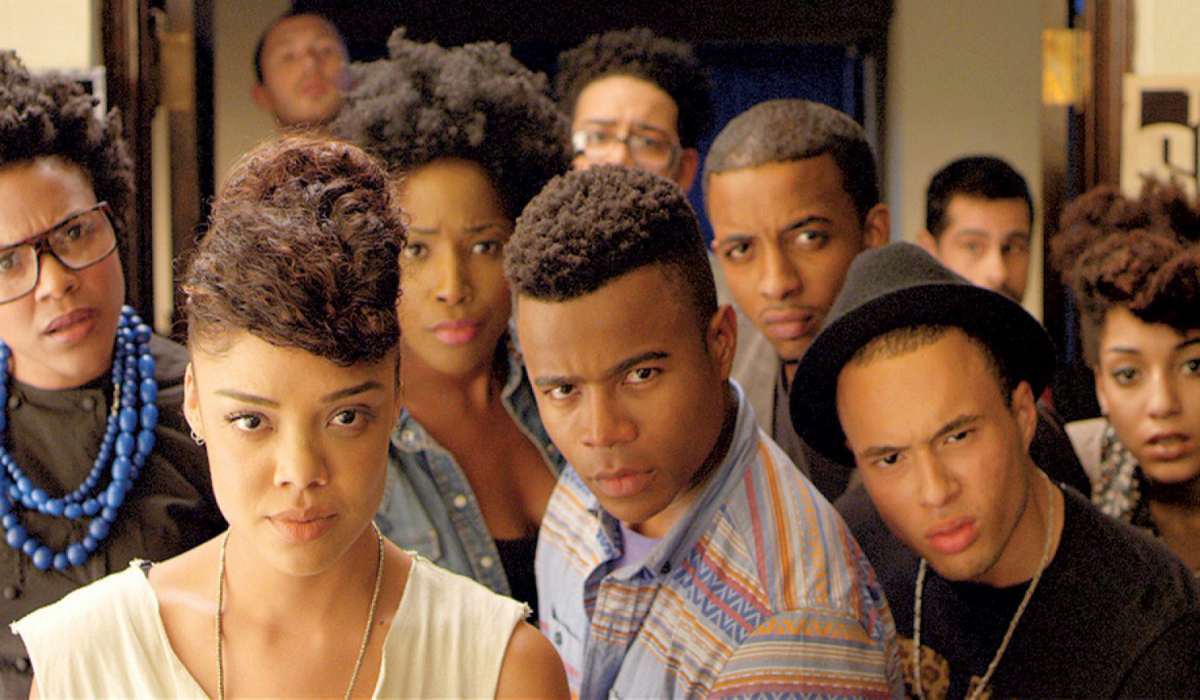Netflix has been releasing epic series one after another. One of their latest is “Dear White People” which is based on the funny and striking movie released on 2014. But according to creator/executive producer, Justin Simien, the show picks up right where the movie left off. “I saw the film’s ending as more of a starting point, considering all that’s happened, and all that’s happening”.
The critically acclaimed movie and the show follows a group of students who attend a fictional Ivy League called Winchester University. This university is predominantly white, setting it as the perfect scenario to address and satirize the spiky racial themes. The show comes in a very accurate time, due to all that has happened. As Simien rejects the notion that we live in a post-racial society.

New Dear White people
“Dear White People,” as well as the movie did, explore the sensible racial world in where we live in. Where the message of tolerance, especially promoted through social media, sometimes gets out of hand and a bit ironically intolerant. The 10-episode Netflix series was released last Friday. As its predecessor the movie, it isn’t afraid to touch deeply into delicate racial themes. With a “yes-we-are-going-there” straight forward style of humor. While they explore of where we are now.
The show returns to fictional Winchester University. It involves a blackface-themed blending-party hosted by the white editors of the campus humor magazine. Taking the boiling racial tensions to a new level. To what college radio D.J. Samantha White (Logan Browning), a film major, who hosts the “Dear White People” radio show, addresses her audience to fiercely talk about the topic.
The party was the film’s breaking point, but it is also the beginning of the show. You don’t need to watch the movie in order to see the show. On the movie, we watch the world through Sam’s perspective. But the series smartly expands it. Following what happened after the party, and shows us the Winchester campus through the eyes of five other students.
“Dear White People’s” creator and writer Siemens talks about it. “There was a lot of ‘Oh, I wish I had touched upon that!’ or wishing gone deeper into some plot lines after the movie wrapped,” Simien stated. “The series speaks to this time in a unique way. We were in a transitional period when the film came out — I feel like 21st-century activism was just beginning to reach a viral peak — and we needed to talk about that…
…Everything feels so life or death when you’re a 20-year-old debating this stuff. Figuring out where you fit in. How do you talk about black activism and the idea wars and trolls and all that stuff without shooting somebody staring at their phone for hours? You put the characters on campus”.
TV and beyond
Simien’s not only wanted to explore beyond all the themes and characters. He also thought that the idea was so good and had so much to offer. At some point it was going to end up being a TV show. As he perfectly adapted it, adding more depth to the characters and their stories. Simien is the writer-director behind several episodes of his adaptation. But the are also special guests, including “Moonlight’s” director Barry Jenkins.
“In a weird way, I always sort of thought it might have to end up on TV. Partially because I wasn’t ready to say goodbye to these people. But mostly, I was seeing and hearing so much stuff when I was listening to these students that I thought, we need more than two hours to dive into this. It’s such a great starting point for a TV show because college is a great microcosm for the country: You’ve got every segment of society represented and you’ve got the next generation figuring out where they fit into society”.
The characters represent everyone
The characters are Lionel (DeRon Horton), a shy, nerdy, journalist who not-so-secretly has feelings for his, playboy roommate Troy (Brandon Bell, doing again his role from the film). As he struggles to live up to the expectations of his demanding father, a Winchester dean, who disagrees strongly with Sam’s speech. Coco (Antoinette Robertson), a driven, aspiring lawyer who also disagrees with Sam’s ideas. There is also Gabe (John Patrick Amedori), a white graduate student, who hooks up with Sam and turns her into the center of gossip due to it.
Sam’s BFF Joelle (Ashley Blaine Featherson), who is conflicted about the interracial relationship. Also gaining more screen minutes on the show. Sam’s secret relationship also causes issues with Reggie (Marque Richardson, also doing his role from the movie), who shares her inclination for activism and has a crush on her. At one point, on the episode directed by Barry Jenkins, Reggie gets into a fight with one of his white friends who casually drops the n-word while singing along to a song at a party. The skirmish escalates quickly and Reggie ends with a white campus cop pulling a gun at him. This shadows the mood of the remaining episodes, while also reminding you that even though it’s a satire it’s what is happening in the real world.
“Plus all of the issues that are happening around the nation are occurring in a much more charged and contained environment in college”. The scene is a wake-up call to the viewers, along with one of the most traumatic moments of the entire series. But “Dear White People” is well done that it turns some horrendous truths into a laughing matter, while also denouncing it.

Source: variety.com



Loading…